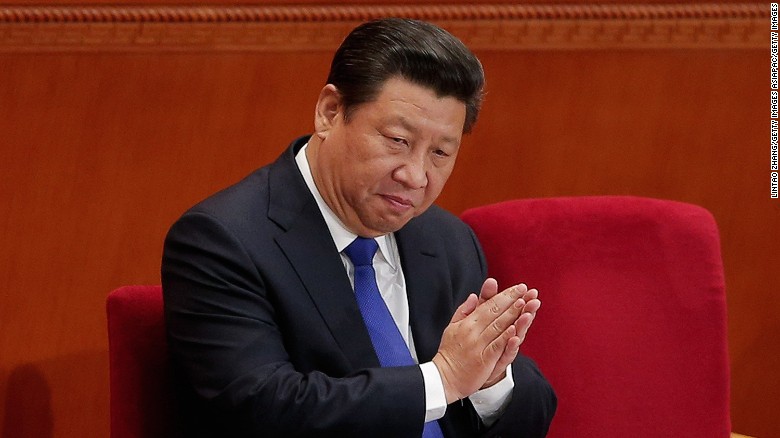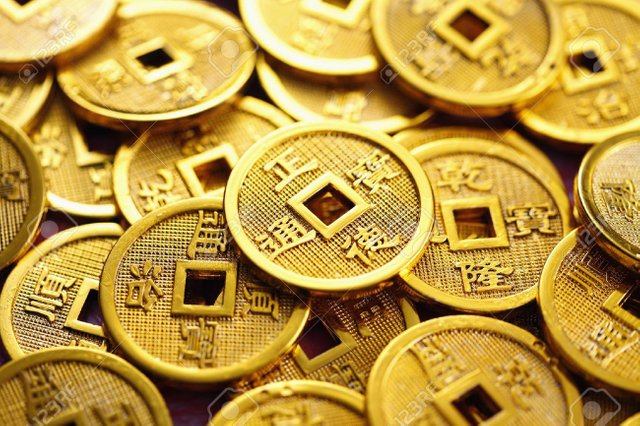China analyst: Jack 'The Ripper' Tan (HK), Master of Applied Economics (UCLA)
Author: Yugo
September 16th 2017.

Over the last few days we have seen a massive dip in prices of major crypto currencies followed by a significant bounce back - in large part due to a tsunami of FUD coming out of mainland China. But what's playing out behind the scenes? What do the latest regulations and restrictions mean in the long run?
Chinese president Xi Jinping has been on an anti-corruption crusade for years, attempting to bring an end to the country's illegal financing activities and the systematic dumping of the CNY. Recently it has been announced that China will be implementing strict regulations regarding ICOs and crypto currency exchanges, prompting selloffs and even exchange closure announcements. The reality is that some Chinese citizens are using crypto currencies exactly for capital outflows and money laundering, hence the FUD will always be reality to them.

Many have claimed (particularly in mainstream financial news outlets - I'm looking at you CNBC) that these moves by the authorities mean that China is banning crypto currencies or forcibly shutting down exchanges. Neither of these claims are accurate but the FUD they have spread is real, at least for now.
One thing we must acknowledge about the Chinese government is that they are smart, organised and serious. They are fully aware of the potential benefits of blockchain technology as well as crypto currencies. Every move the authorities make is designed to increase and maintain control - be it over information, fundraising and, in this case, financial systems.
For example, the authorities have set the rules to ensure that any crypto currency exchange companies wishing to operate in China would bear full responsibility regarding KYC (know your customer) functions. These regulations are very strict and resource heavy. Case in point:
Imagine an exchange was to find from its history that some customer accounts were receiving massive BTC transactions from addresses associated with large mining pools in China or unregulated black market cash-to-BTC operations.
Lets say those transactions were moving from a BTC address to another Chinese exchange address like bter.com. There the BTC is converted to Monero on bter.com and the bter records show the Monero was transferred to a Korean exchange like Bithumb where it swiftly vanishes into thin air. Months later a laundering operation bust takes place in Korea and reveals the entire money trail, BTC > XMR > Korean Won, where those transactions added up to millions of CNY. If the bust was to reveal that this went on from months without action from the Chinese exchange, that exchange would be completely doomed and liable to severe penalties, including license revocation and jail time.
This may be the underlying reason for the closure of Chinese exchanges, rather than a government shutdown. They may not be intentionally harboring money laundering, but their systems (from KYC to monitoring) are inadequate at doing the job of self-regulating. The probability is that somewhere along the line most exchanges have slipped up and significant amounts of CNY have left the country and now those exchanges must suffer the consequences.
So, what does the future hold?
One theory claims that in order to control blockchain transactions inside China, the blockchain itself will need to enter the Great Firewall. This will be done not through the BTC blockchain but through the government's own creation - a "fed" coin pegged to the price of Bitcoin, another pegged to USD and yet another to CNY. If an investor wanted to buy BTC they could, but only through the federally managed blockchain. In this way only the Chinese 'pseudo blockchains' would be able to interact with the outside world. These blockchains could and would do business with the rest of the world, but only under government regulated terms (controlled ports of entry and exit / what can enter /what can leave and how much). Once this is in place and under control by a strict firewall the system is bound to flourish.

When we hear statements like "China will be the leading nation in blockchain technology and crypto currencies" we recognize the classic control maintenance pattern. This would be the standard Chinese government reaction to uncontrolled influences (read: internet, Facebook, Google, Tencent, Sina, Weibo, Baidu).
Not all analysts agree with the 'pseudo blockchain' theory. Some claim that the Chinese government is looking to partner up with existing platforms, which already have the tech in place, a team in place and international recognition. Nobody doubts that the government has the resources to develop their own versions, but will they be able to attract the brightest minds? This remains doubtful.
It does not escape notice that recent great Asian tech successes (Alibaba, Tencent, Baidu) are not state owned enterprises. Moreover the 'pseudo blockchain' system would be totally against blockchain principles, rendering it pointless and resulting in lower rates of adoption than independent projects.
At the end of the day what the Chinese authorities want is to control capital outflows and money laundering. This is a positive move and will help to alleviate the stigma that crypto currencies are mainly used for illegal activities and that "Bitcoin is a fraud" (thanks for that nugget Jamie Dimon).
Let us not forget the lessons from history. The biggest crypto currency crash thus far was in December of 2013. At the time BTC trading volume was roughly 90% from China and a rumor spread quickly that Chinese authorities would be banning Bitcoin. This caused a BTC dip from 1200 USD to 600 USD within a very short period, followed by another dip all the way to 200+ USD in early 2015. The ban turned out to be a hoax (official documents only suggested the government wanted to add regulation) but the FUD was all too real.